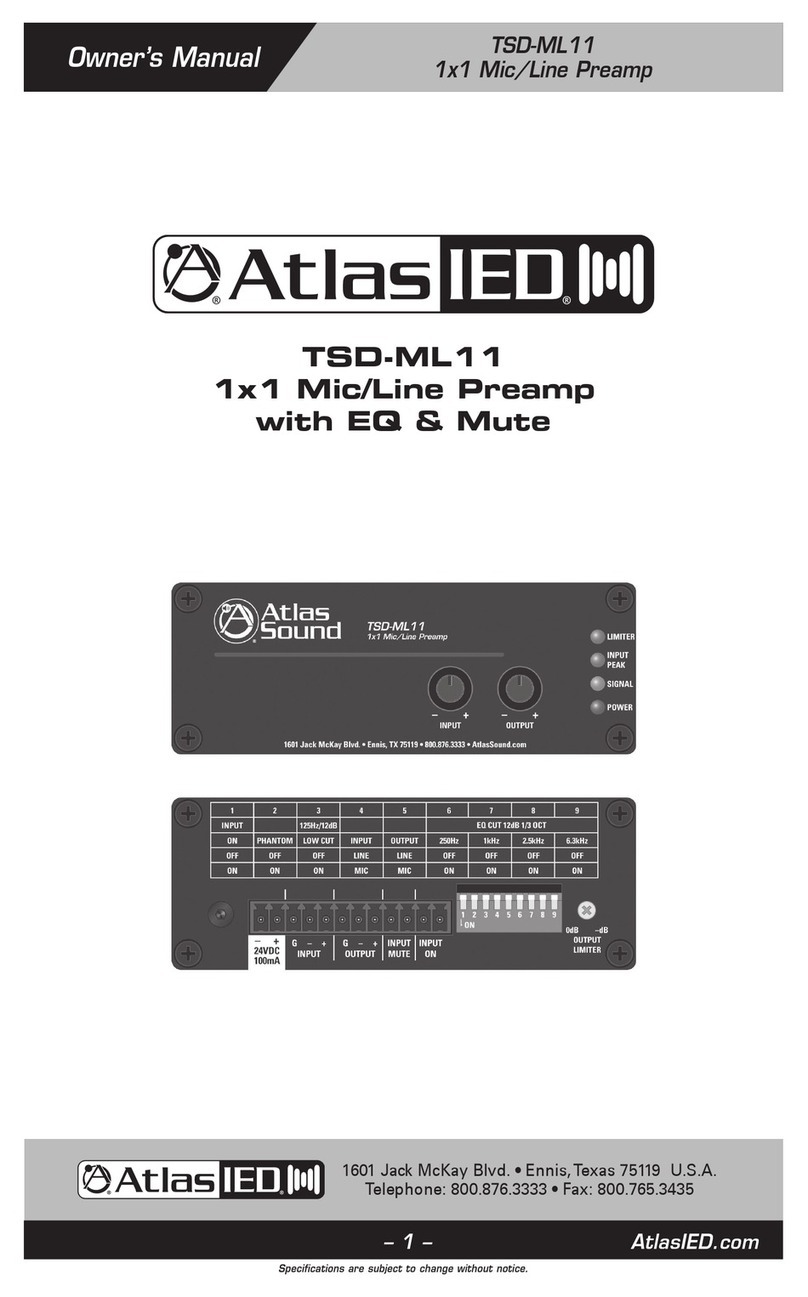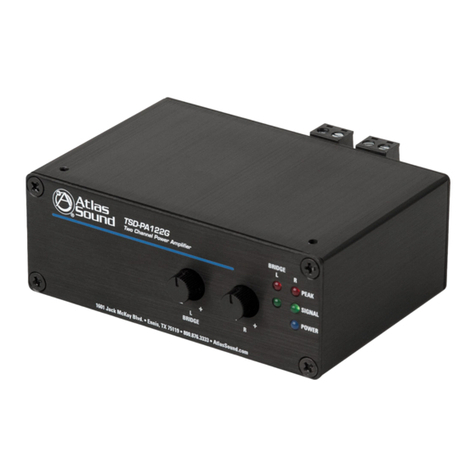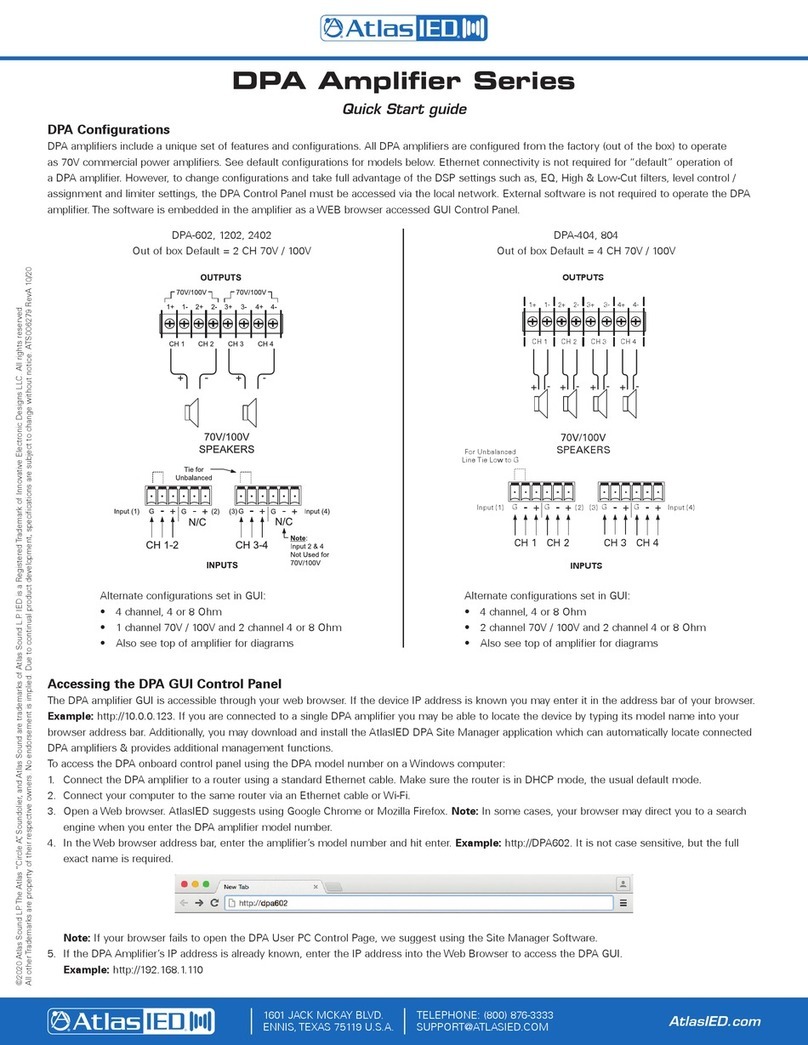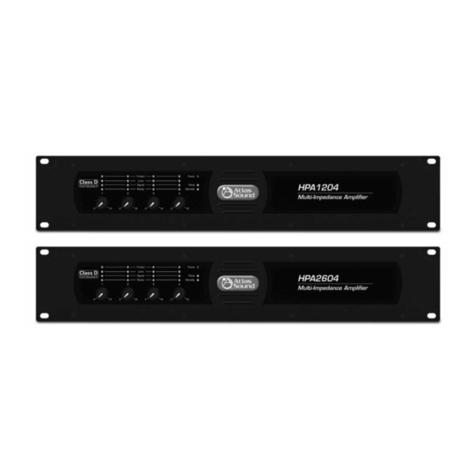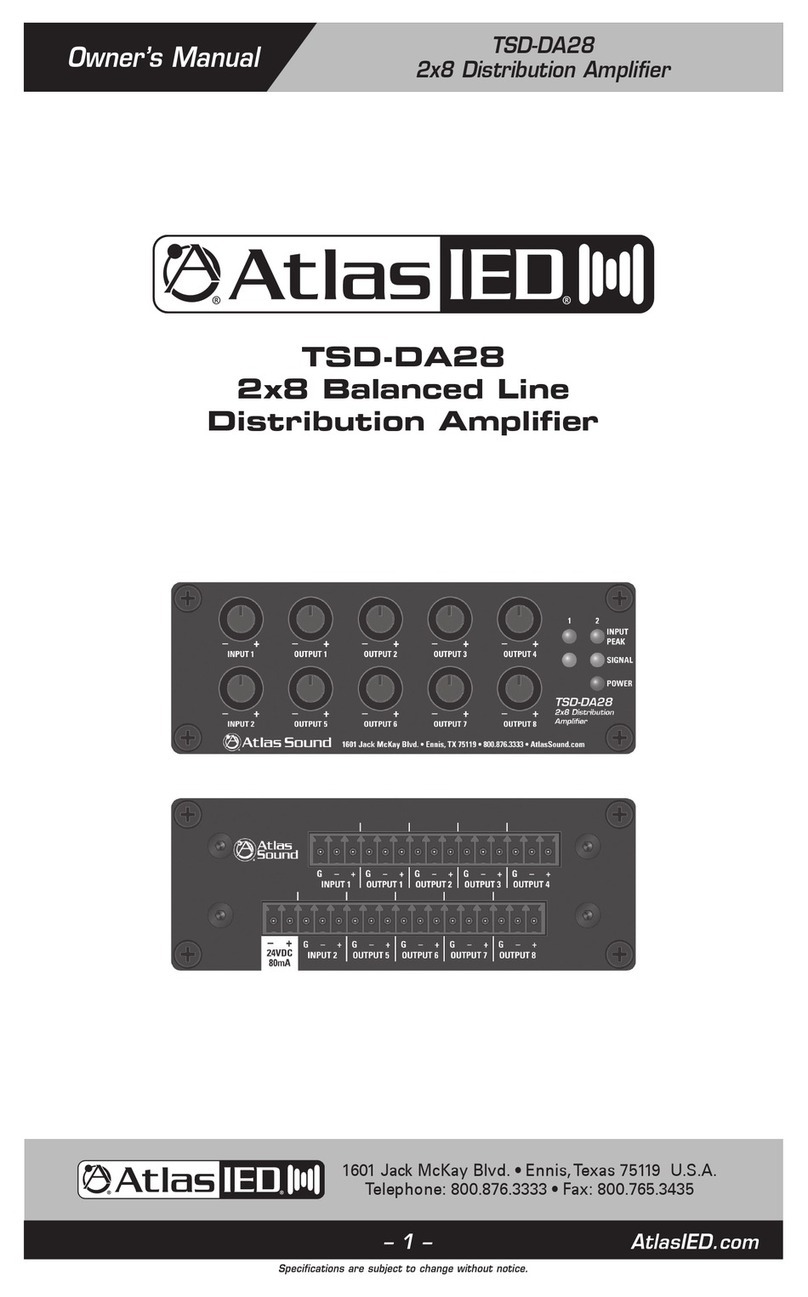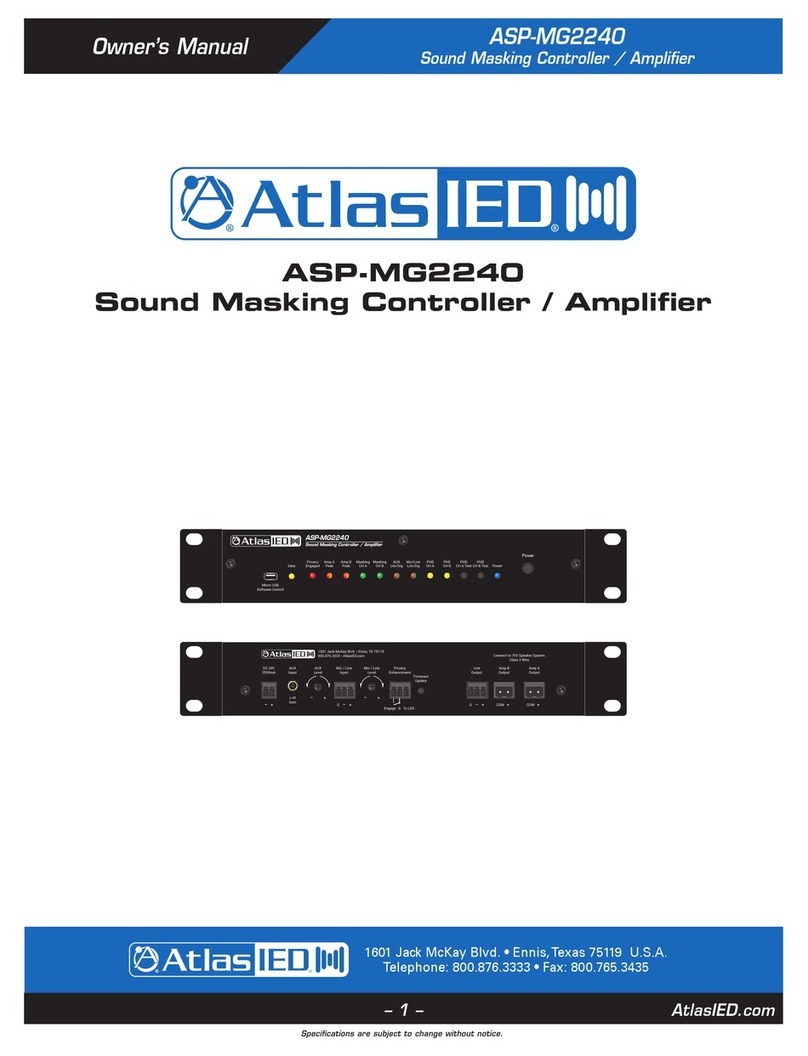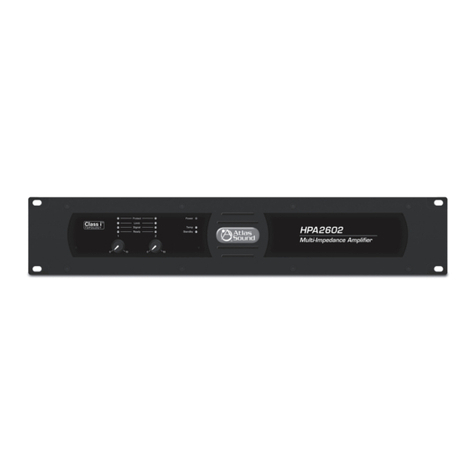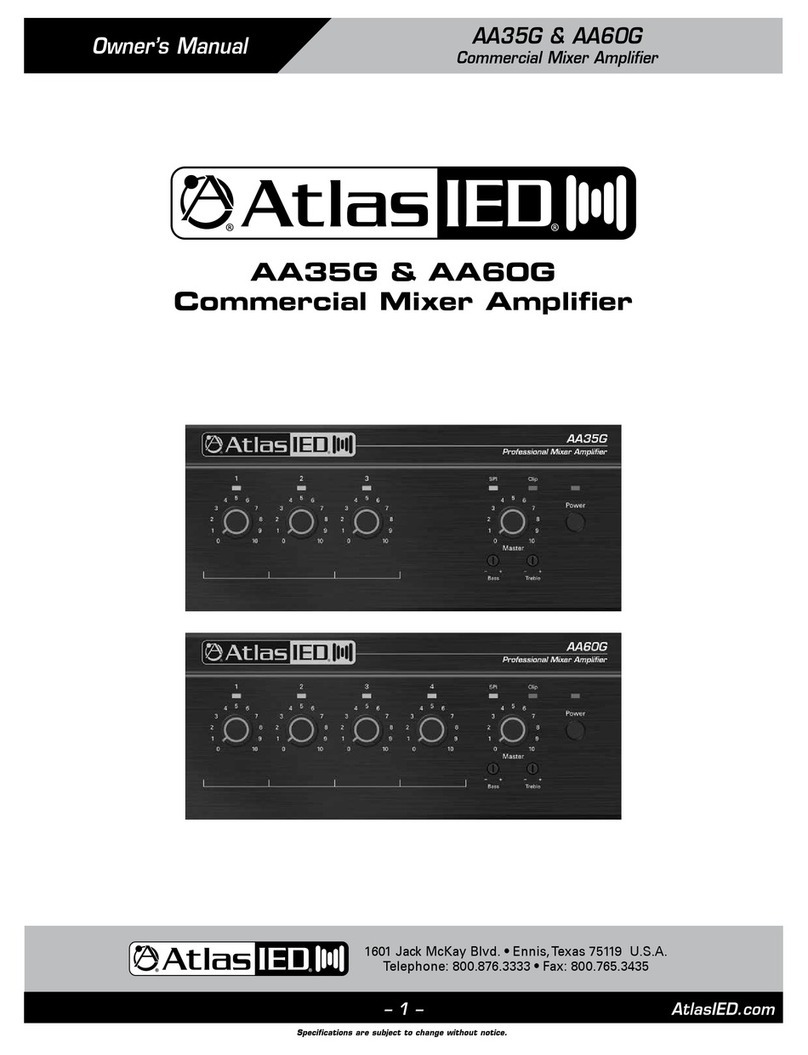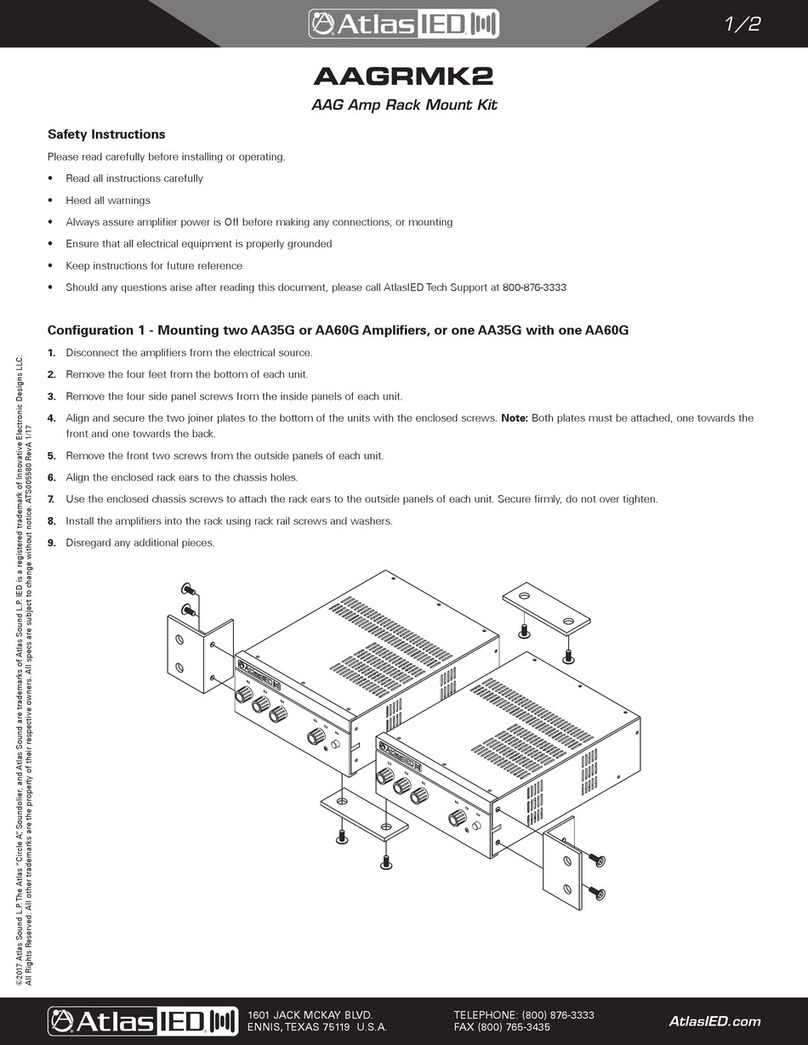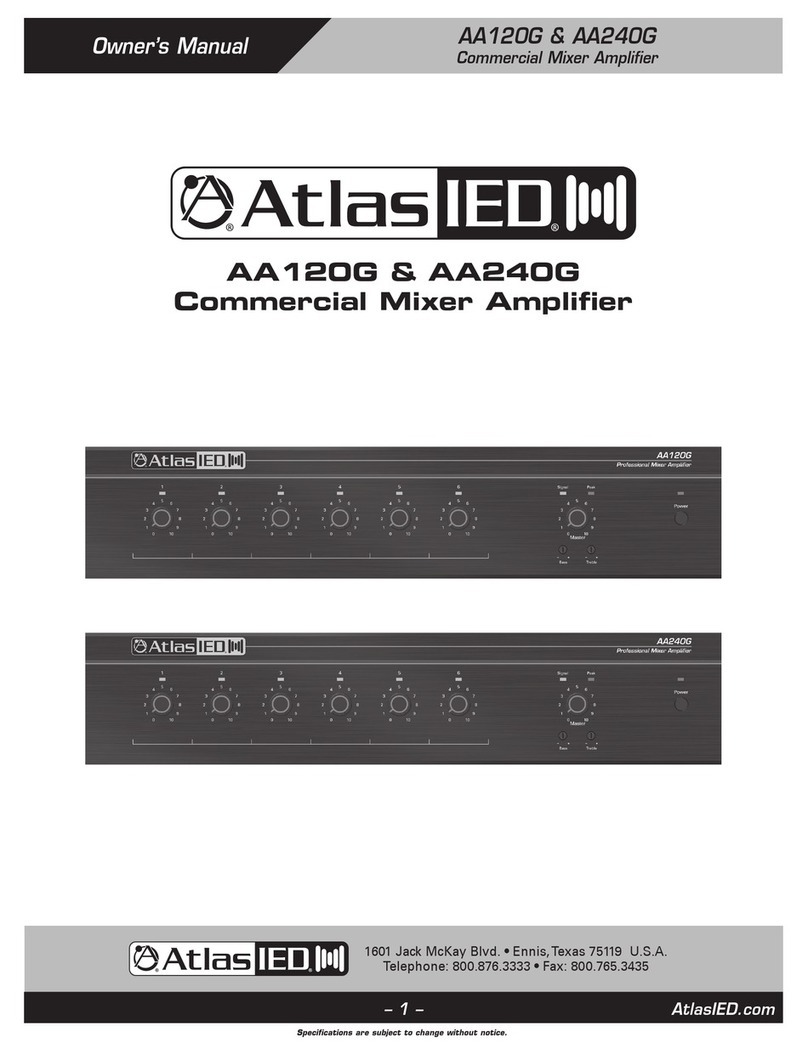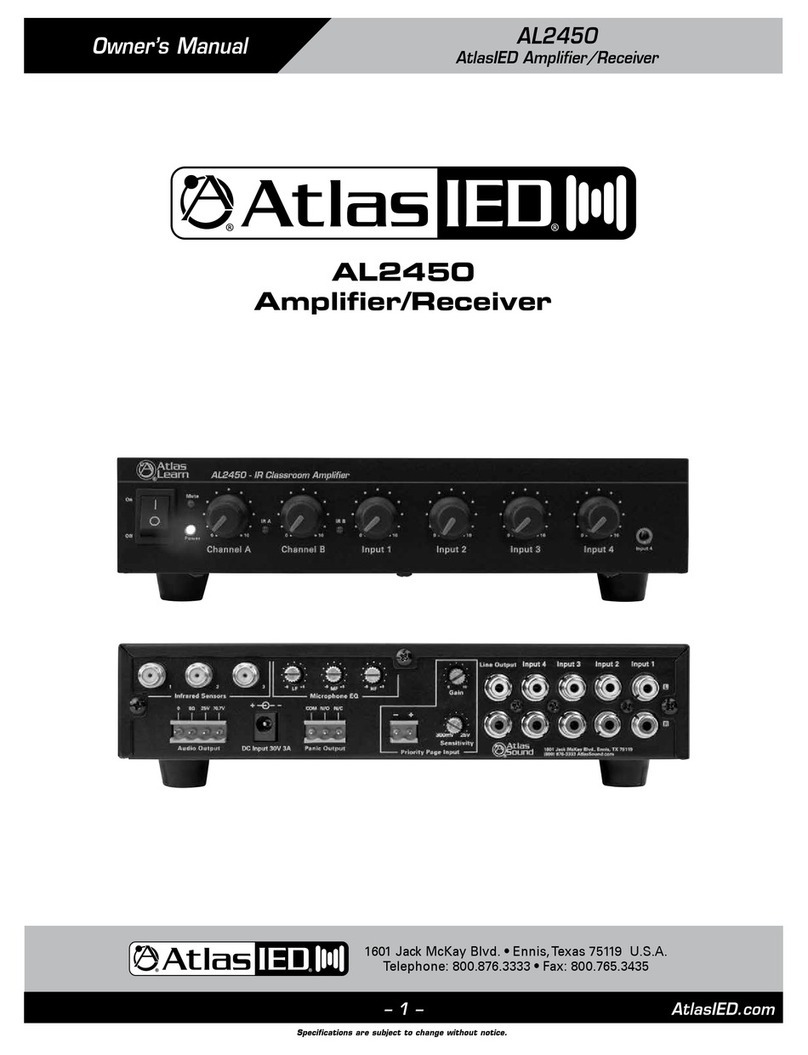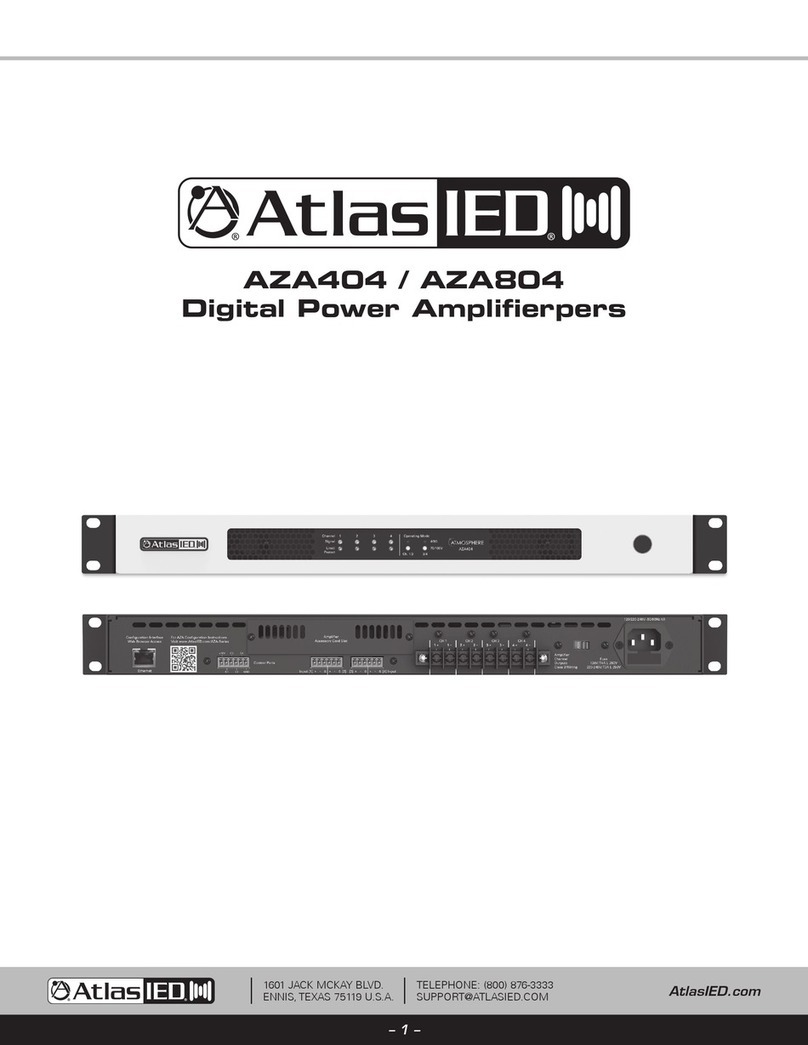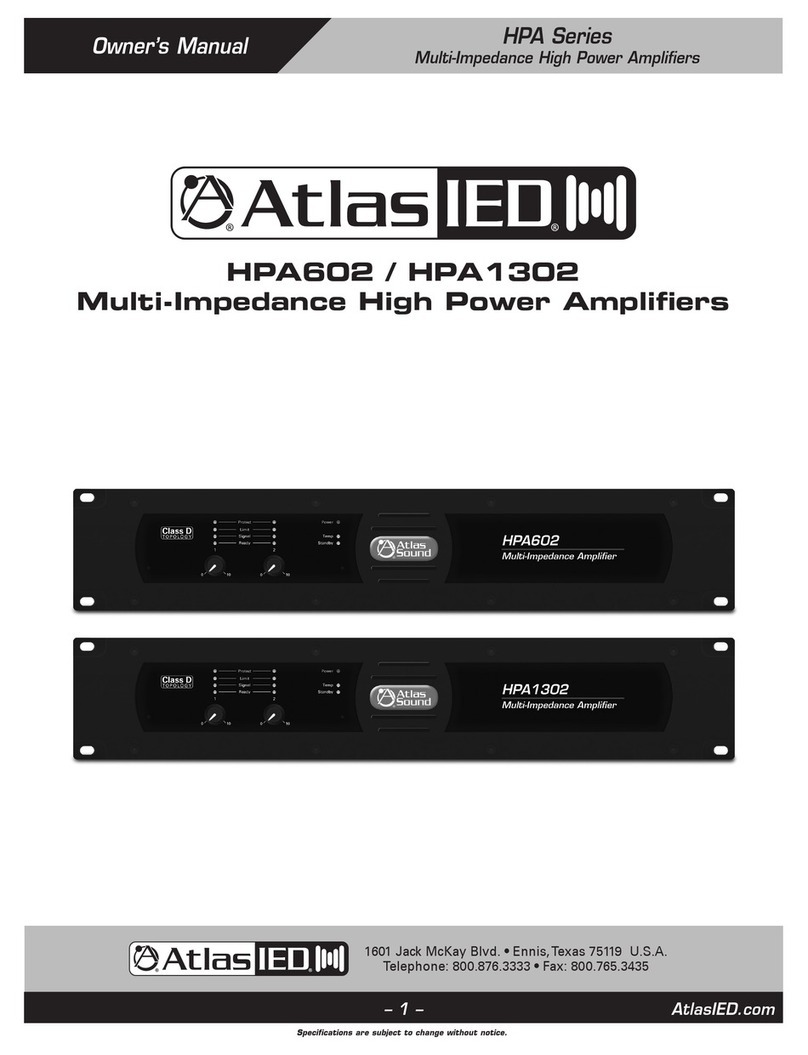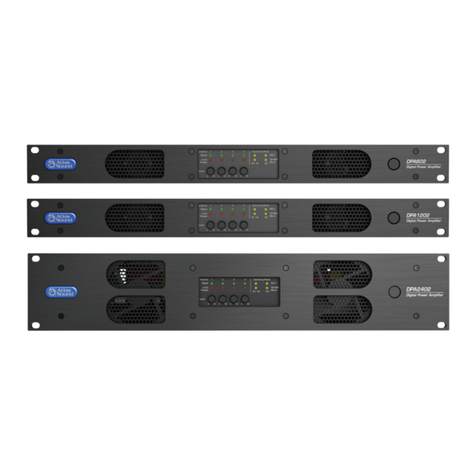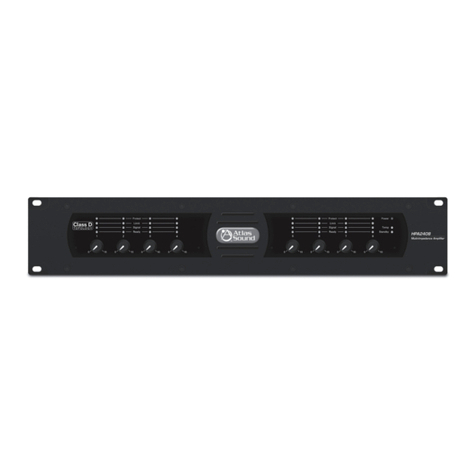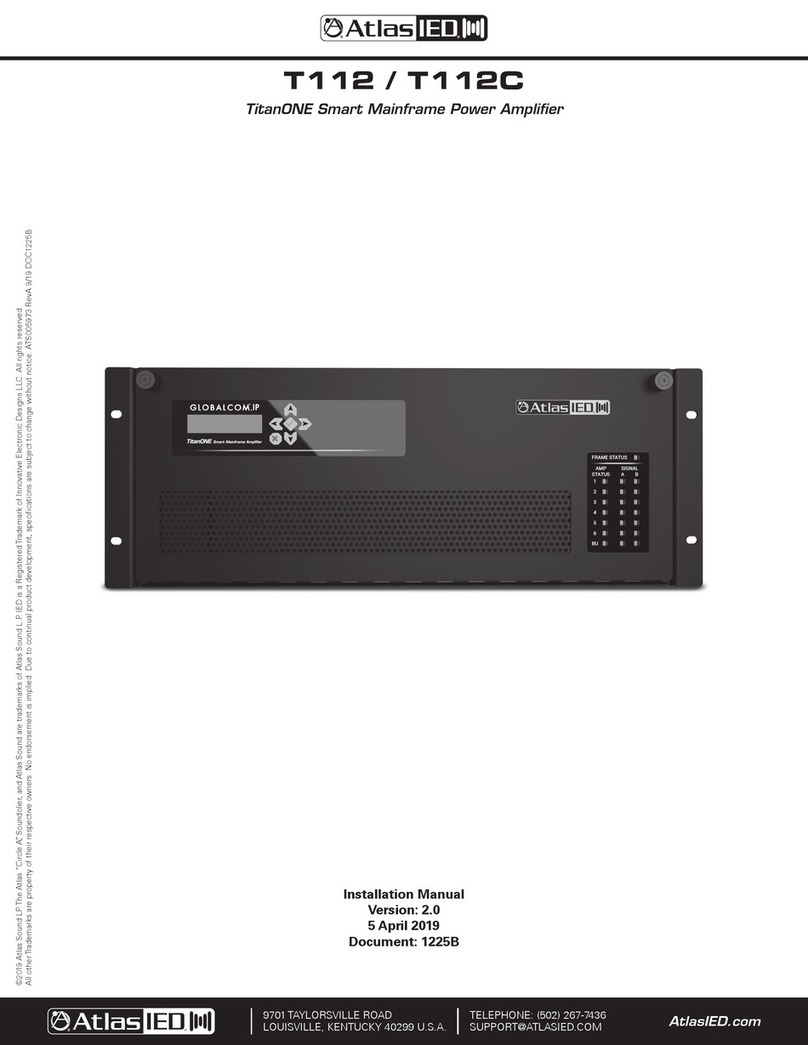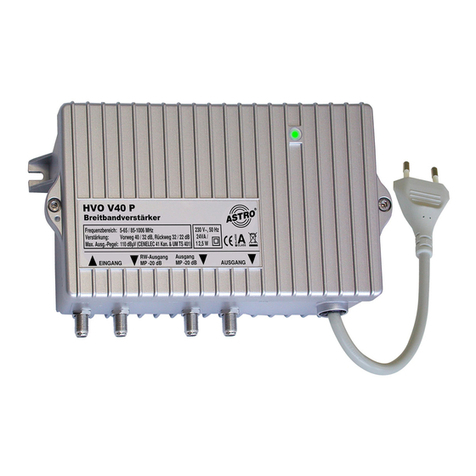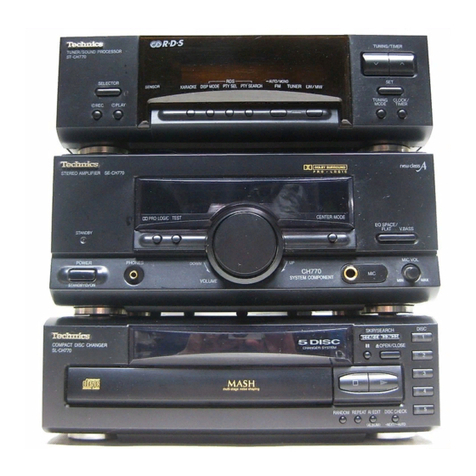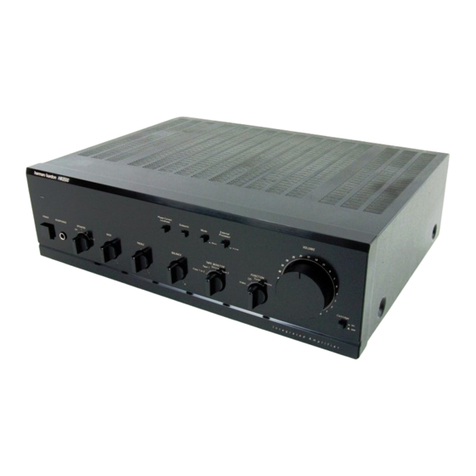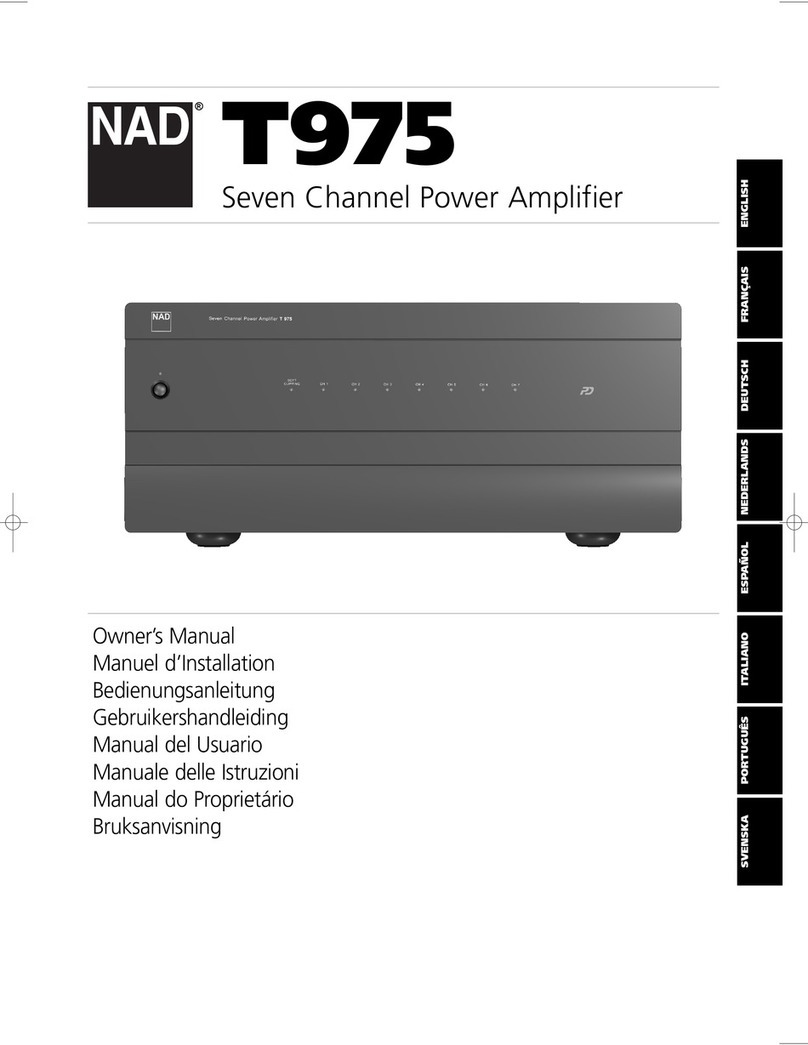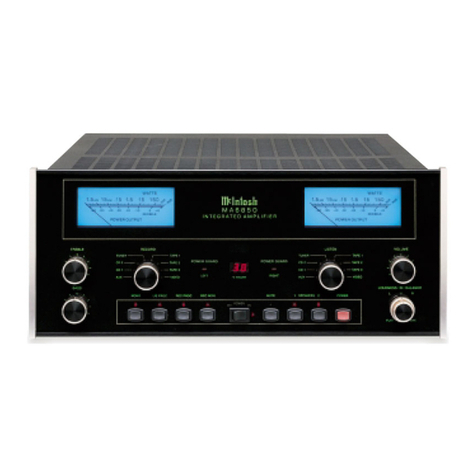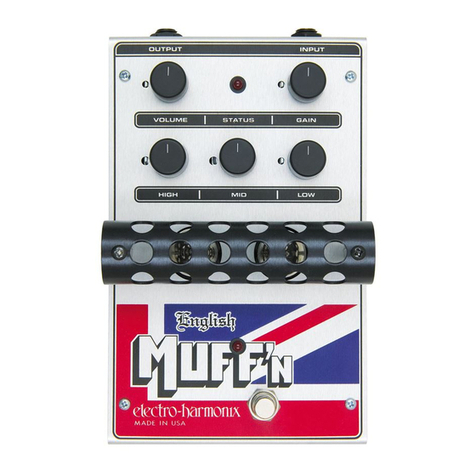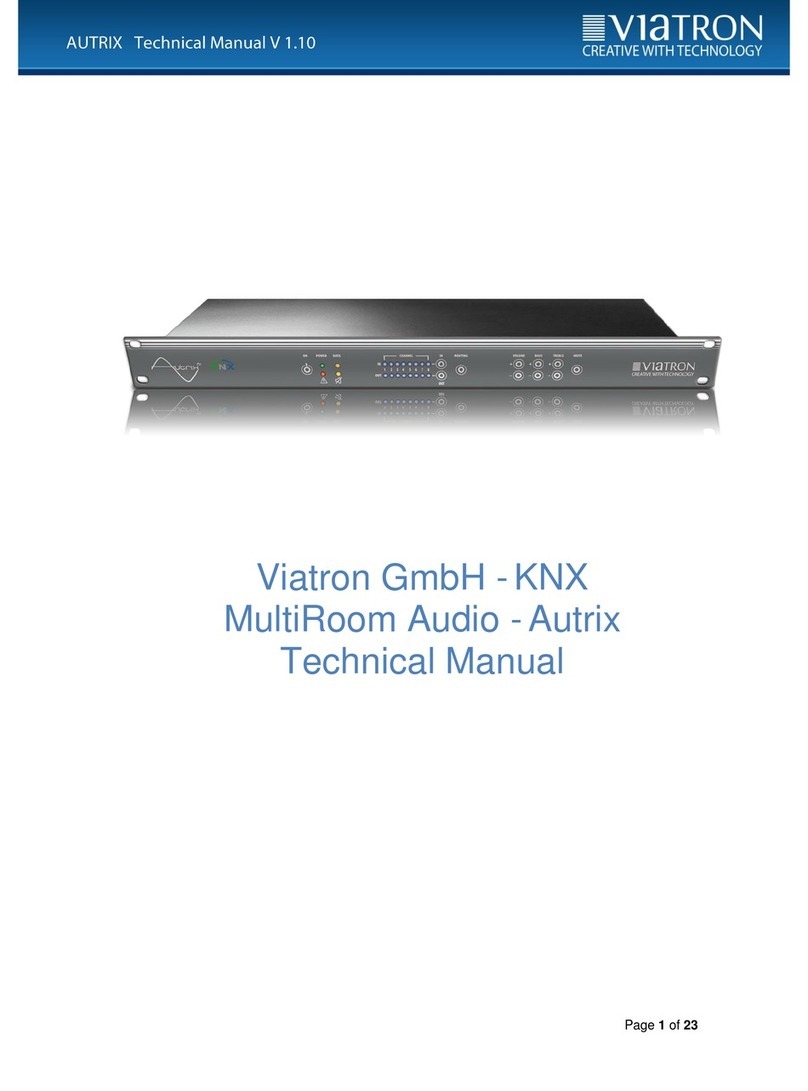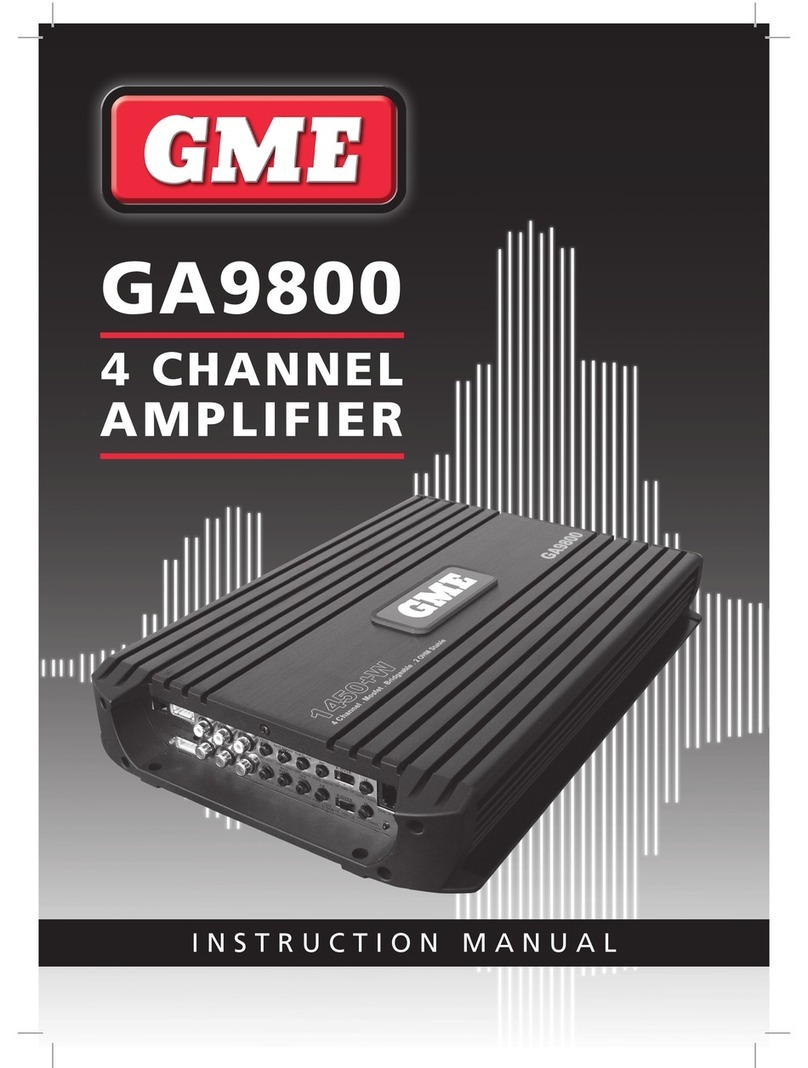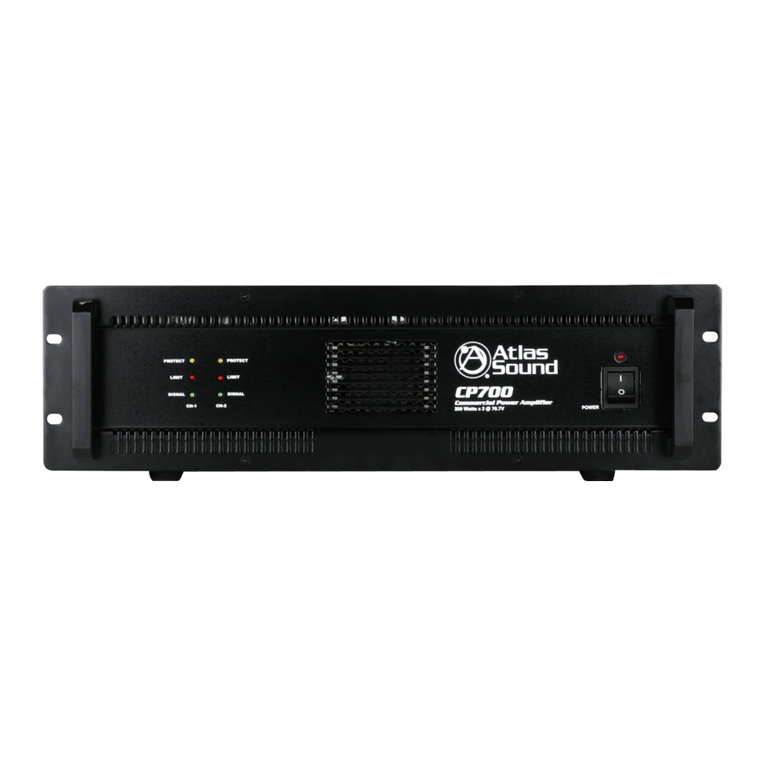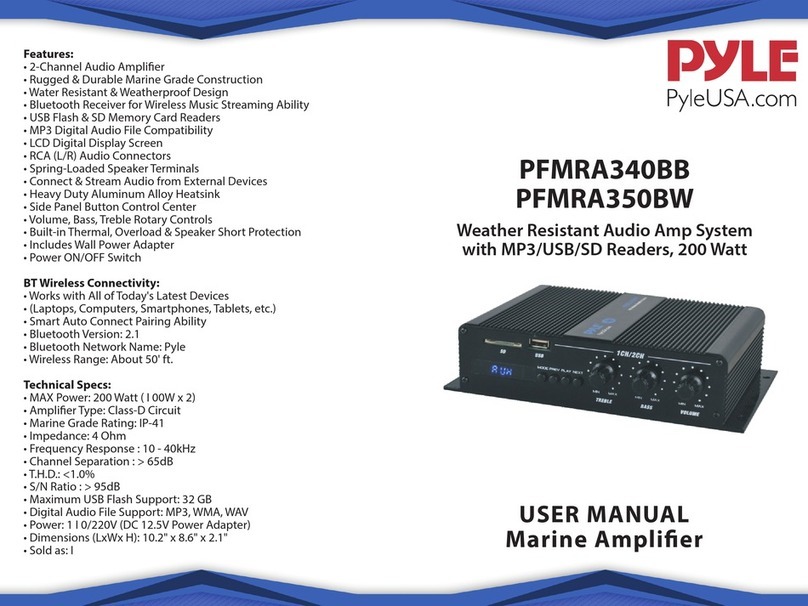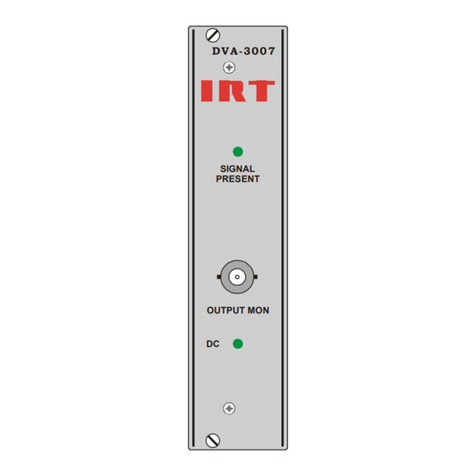
– 5 – AtlasIED.com
Specifications are subject to change without notice.
Owner’s Manual DPA Series
Digital Power Amplifiers
1601 Jack McKay Blvd. • Ennis,Texas 75119 U.S.A.
Telephone: 800.876.3333 • Fax: 800.765.3435
Introduction
The AtlasIED DPA amplifier series features a combination of flexibility, performance and control to provide high value features for
applications that require more than just great sound. The network based DPA404 and DPA804 are DSP controlled four-channel
amplifiers that can be configured in three different amplification arrangements to meet the design requirements of any installation.
These DPA models are factory preconfigured in a four-channel 70V mode. If the design requires four channels of low impedance
amplification, the DPA amplifiers can be configured as four-channel models with either 4-Ohm or 8-Ohm load impedances. Many
system designs require both low and high impedance amplification. These DPA models can be configured to deliver 70V / 100V for a
paging / background system on two channels plus two additional 4/8-Ohm amplifier channels for a foreground stereo application.
These DPA models come standard with four balanced line inputs and an accessory slot for an optional DPA-DAC4 four-channel Dante™
receiver card or a DPA-AMIX (2) mic / line, (2) AUX input card, giving the DPA404 and DPA804 a total of 8 inputs. All inputs can be
mixed and routed to any of the four amplifier channels. All four amplifier channels have an assortment of DSP tools including level
controls, EQ’s, limiters, high & low pass filters, and delay to provide flexibility for a range of applications.
DPA Series amplifiers feature either local or network control making them a true “game changer” in the commercial audio world. The
output level can be assigned to either the front panel potentiometers or to the onboard GUI. Wired remote level control and input select
can be configured to allow simple control for the end user. Each unit also features GUI based input and output level metering along
with assignable mute functions that are triggered via an audio signal or contact closure. Access to the DSP settings is accomplished via
computer, tablet or mobile device using a web browser. All settings can be password protected.
The DPA series amplifiers also include PC based site manager software that automatically searches within a specific network for all
DPA amplifiers on the network. It will list them and allow single click access to any unit. The DPA Site Manager software can do a
variety of functions besides locating IP addresses including fault reporting, input & output status, standby status and remote activation
via a scheduler timer.
The DPA404 and DPA804 are ready to use, out of the box in four-channel 70V / 100V mode, with no configuration or network
connectivity required making them a cost effective solution even for applications that do not require processing or network control.
Key Features
DPA404 Configuration Power Levels
• 4 x 100 Watt 70V (Factory Default)
• 4 x 100 Watt 100V
• 4 x 75 Watt 8Ω
• 4 x 50 Watt 4Ω
• 2 x 100 Watt 70V / 100V & 2 x 75 Watt @ 8Ω
• 2 x 100 Watt 70V / 100V & 2 x 50 Watt @ 4Ω
DPA804 Configuration Power Levels
• 4 x 200 Watt 70V (Factory Default)
• 4 x 200 Watt 100V
• 4 x 150 Watt 8Ω
• 4 x 100 Watt 4Ω
• 2 x 200 Watt 70V / 100V & 2 x 150 Watt @ 8Ω
• 2 x 200 Watt 70V / 100V & 2 x 100 Watt @ 4Ω
• GPIO - Assignable for remoter level & mute
• No computer required to use
• Configurable DSP
• PC, iOS®, & Android®controllable
• User page with assignable input & output level control
• Site manager software with network auto-discovery, fault
reporting, input & output status, standby status and remote
activation via a scheduler timer
• On board web GUI for remote monitoring of status & levels
• Mute assignments triggered via audio signal or contact closure
• APD - auto power down with audio sense turn on
• 4 balanced inputs (up to 8 inputs with optional accessory card)
• Optional accessory card slot for a DPA-DAC4 four-channel
Dante™receiver card or a DPA-AMIX (2) mic / line, (2) AUX
input card
• Assignable level controls, on board GUI (security password
protected) or by front panel pots with tamper deterring covers
• Assignable remote level control when used with optional
WPD-VC10K
• DPA amplifier site manger software
• DPA amplifier discovery software
